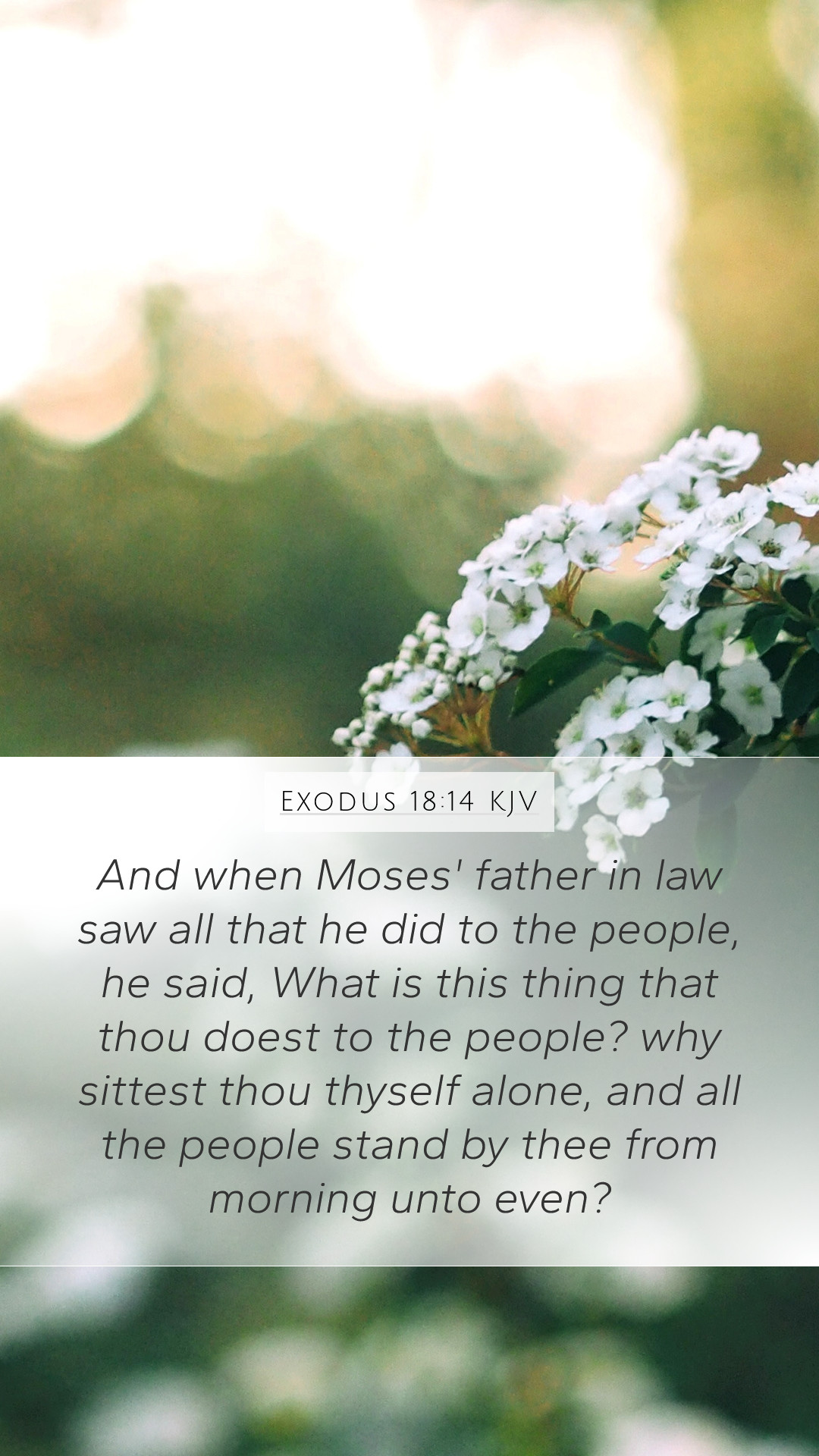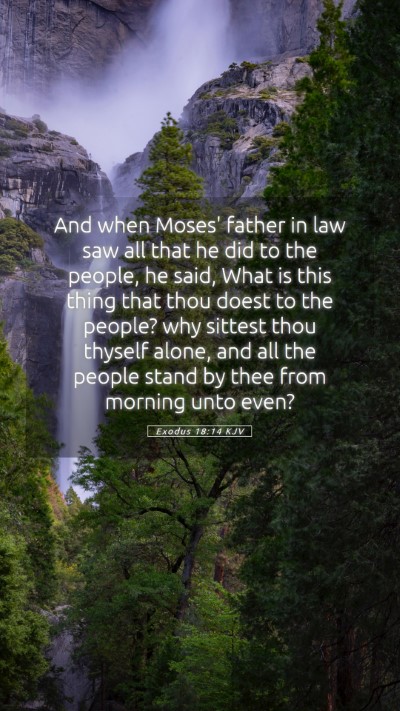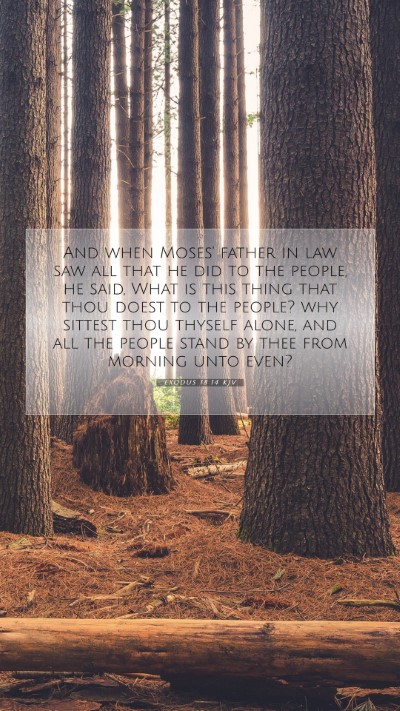Exodus 18:14 - Understanding Scripture
Exodus 18:14 states: "When Moses' father-in-law saw all that he was doing for the people, he said, 'What is this you are doing for the people? Why do you alone sit as judge, while all these people stand around you from morning till evening?'"
Summary of the Verse Meaning
This verse captures a pivotal moment in the life of Moses, highlighting the recognition of the burdens he was placing on himself by single-handedly judging the people of Israel. The inquiry from Jethro, Moses' father-in-law, marks the beginning of significant organizational and leadership advice that would help Moses manage the responsibilities of leadership more effectively.
Insights from Public Domain Commentaries
- Matthew Henry:
Henry emphasizes the importance of community and shared responsibility in leadership. He points out that both Moses' calling as a leader and his struggle to manage the multitude's needs are evident. Jethro’s question reflects a concern for Moses' well-being, suggesting that no one person should carry the weight of leadership alone.
- Albert Barnes:
Barnes elaborates on the implications of Moses’ isolated position as judge. He notes that Moses was overwhelmed by the sheer volume of disputes and that this practice was unsustainable. The commentary also highlights the wisdom in seeking help, pitting the counsel of Jethro as a vital turning point for effective governance among the people.
- Adam Clarke:
Clarke draws attention to the practical implications of Jethro's advice. He discusses how Moses’ role was not merely to act as judge but to be a leader and a mediator for the people. Clarke suggests that Jethro’s question implies a deeper issue regarding the administrative structure and the need for delegation of responsibilities among appointed leaders.
Key Themes of Exodus 18:14
- Burden of Leadership:
The verse emphasizes the significant burden that Moses carries, reflecting the hardships of leaders who take on too much responsibility alone.
- Community Involvement:
It underscores the wisdom in involving a community in decision-making and problem-solving, highlighting the need for collaboration.
- Advice and Wisdom:
Jethro’s counsel signifies the importance of seeking advice from those who have experience and wisdom in leadership matters.
- Organizational Structure:
Clarity in roles and responsibilities is essential in any leadership structure, which this verse prompts Moses to reconsider.
Practical Applications
The understanding of Exodus 18:14 can greatly benefit modern Bible study groups by reminding leaders of the importance of sharing duties within the community, thus creating sustainable practices in service and governance.
Application to Daily Life
In daily life, this verse teaches the value of collaboration and delegation. Leaders in various settings, from families to corporations, can learn from Moses' plight to avoid burnout and foster teamwork.
Related Bible Cross References
- Exodus 18:19-21: Where Jethro advises Moses on appointing judges over the people.
- Numbers 11:14-17: Moses expressing his inability to lead the people alone, reiterating the theme of shared responsibility in leadership.
- Proverbs 11:14: Emphasizing the importance of counsel and the multitude of advisors in decision-making.
Conclusion
Exodus 18:14 serves as a profound reminder of the challenges leaders face and the importance of community in overcoming them. Through the insights of esteemed biblical commentaries, one gains a clearer understanding of the responsibilities associated with leadership, the necessity for delegation, and the indispensable nature of wise counsel.
Further Study
As you delve deeper into the meanings of Bible verses and their interpretations, consider exploring the historical context of this passage and its implications for contemporary leadership and community practices. Utilize resources such as Bible study guides, Bible study tools, and Bible study courses to aid in your exploration.


